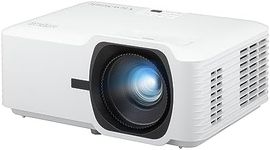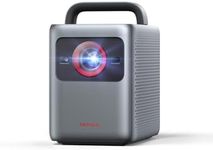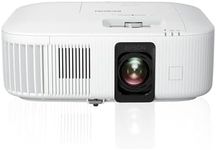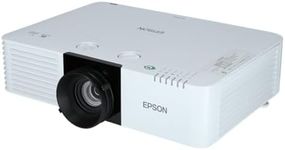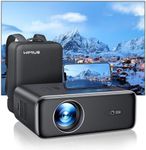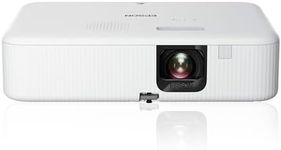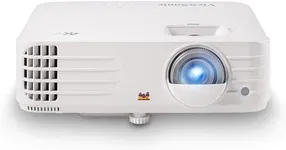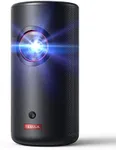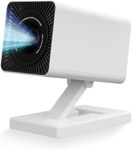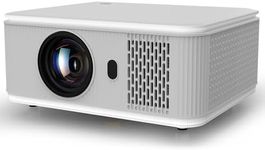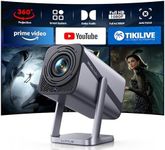Buying Guide for the Best Outdoor Daytime Projector
Choosing the right outdoor daytime projector can significantly enhance your viewing experience, whether you're hosting a backyard movie night or giving a presentation in a sunlit area. The key is to focus on the specifications that will ensure clear, bright, and vibrant images even in daylight conditions. Understanding these specifications will help you make an informed decision that aligns with your specific needs and environment.Brightness (Lumens)Brightness, measured in lumens, is crucial for outdoor daytime projectors because it determines how well the image will be visible in bright conditions. For outdoor use during the day, you'll need a projector with a high lumen count. Typically, projectors with 3,000 to 5,000 lumens are suitable for shaded areas, while those with 5,000 lumens or more are better for direct sunlight. Consider the level of ambient light in your outdoor space to choose the right brightness level.
ResolutionResolution refers to the number of pixels that make up the image on the screen, affecting the clarity and detail of the picture. For outdoor projectors, a higher resolution like Full HD (1080p) or even 4K is recommended to ensure a sharp and clear image, especially if you're projecting onto a large screen. If you're planning to watch high-definition content or use a large screen, opt for a higher resolution to enhance your viewing experience.
Contrast RatioThe contrast ratio measures the difference between the darkest and brightest parts of an image. A higher contrast ratio means more vibrant colors and deeper blacks, which is important for image quality, especially in daylight. For outdoor projectors, a contrast ratio of at least 10,000:1 is advisable to ensure that the image doesn't look washed out. Consider the type of content you'll be viewing; movies with dark scenes will benefit from a higher contrast ratio.
PortabilityPortability is about how easy it is to move and set up the projector. If you plan to frequently move your projector or use it in different locations, look for a lightweight model with a compact design. Some projectors come with carrying cases or handles, which can be very convenient. Think about how often you'll need to transport the projector and choose one that fits your mobility needs.
Connectivity OptionsConnectivity options determine how you can connect your projector to various devices. Look for projectors with multiple input options like HDMI, USB, and wireless capabilities to ensure compatibility with your media sources. If you plan to stream content from a smartphone or laptop, wireless connectivity can be a great feature. Consider the devices you will be using with the projector and ensure it has the necessary ports and connectivity options.
Durability and Weather ResistanceDurability and weather resistance are important for outdoor projectors as they may be exposed to elements like dust, moisture, and temperature changes. Some projectors are designed with rugged casings or are specifically rated for outdoor use. If you plan to leave the projector outside for extended periods, look for models with weather-resistant features. Consider the typical weather conditions in your area and choose a projector that can withstand them.
